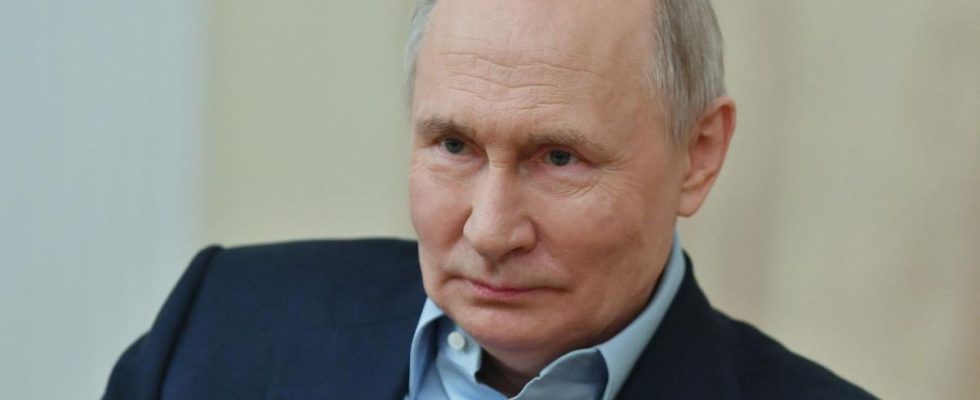Russia attacks Ukraine with 28 drones at night
“It is entirely conceivable that the Russians will try to move the front to the south.”
According to the governor of the eastern Ukrainian region of Kharkiv, Oleh Synehubow, the Russian military attacked with foreign-made missiles. Our Russia correspondent Christoph Wanner explains the current situation in the region.
Ukraine was attacked by Russia during the night with almost 30 drones; 21 of the drones were intercepted. On the evening before Orthodox Christmas, Russian President Putin also made a statement – but in a different way than last year.
DAccording to their statements, the Russian armed forces attacked Ukraine on Sunday night with 28 drones and three cruise missiles. The Ukrainian Air Force said on Telegram that 21 drones were intercepted and destroyed. She leaves it open what happened to the three cruise missiles. The target of the Russian attack was primarily the south and east of Ukraine.
There were impacts in the megacity of Dnipro and the large city of Zaporizhzhia in the southeast of Ukraine, which is not far from the front. In Dnipro, an apartment block was damaged by the impact, said Governor Serhiy Lyssak during the night. According to him, the residents of the house were able to be rescued from the rubble largely unharmed.
On the eve of Orthodox Christmas, Russian President Vladimir Putin vowed to support the soldiers who defend Russia’s interests “with weapons in hand.” “Many of our men, our brave, heroic boys, Russian warriors, even now, on this holiday, defend the interests of our country with weapons in hand,” Putin said at a meeting with families of Russian soldiers who died in Ukraine .
Putin at an Orthodox Christmas service with the families of military personnel
Source: dpa/Gavriil Grigorov
Addressing relatives, he says: “I want our meeting to be a clear, understandable signal to all my colleagues throughout the Russian Federation and at all levels – a clear signal that my colleagues are always and everywhere by their side, me repeat, at every level of power.” Unlike last year, this year Putin did not call for a ceasefire in Ukraine during Orthodox Christmas on January 6th and 7th.
Japan’s foreign minister surprises in Kyiv
Meanwhile, Japanese Foreign Minister Yoko Kamikawa made a surprise trip to Ukraine on Sunday. At a meeting with her counterpart Dmytro Kuleba in Kiev, she wanted to emphasize her country’s support for Ukraine.
In a meeting with Kuleba, Kamikawa wanted to emphasize her government’s position to support the country in the “current difficult international situation,” the Japanese Foreign Ministry said. She also wants to openly exchange ideas with the Ukrainian side about efforts to achieve lasting peace. Japan, in line with the West, had imposed sanctions against Russia. However, the country’s pacifist constitution does not allow Japan to supply weapons to Ukraine.
Despite the ongoing Russian air strikes, Ukraine wants to massively increase its arms production, according to President Volodymyr Zelensky. “We are working as hard as possible to ensure that our defense and security forces can rely on our own Ukrainian production for a significant part of their operations this year,” Zelensky said in his daily video address on Saturday evening. The enemy will increasingly feel the power of Ukrainian weapons. He demanded that Ukraine must give an appropriate response to every type of Russian terror and every increase in Russian pressure.
Ukraine has been fending off a Russian invasion for almost two years. In the past, it has also relied heavily on Western military aid. But because of the political power struggle in the USA, which is seen as Kiev’s most important military supporter, future arms deliveries from there are completely open.
In “Change in Power”, journalists Dagmar Rosenfeld and Robin Alexander from the WELT editorial team discuss Germany’s major political questions every Wednesday. Subscribe to the podcast at, among other places Spotify, Apple Podcasts, Deezer, Amazon Music or directly via RSS feed.


